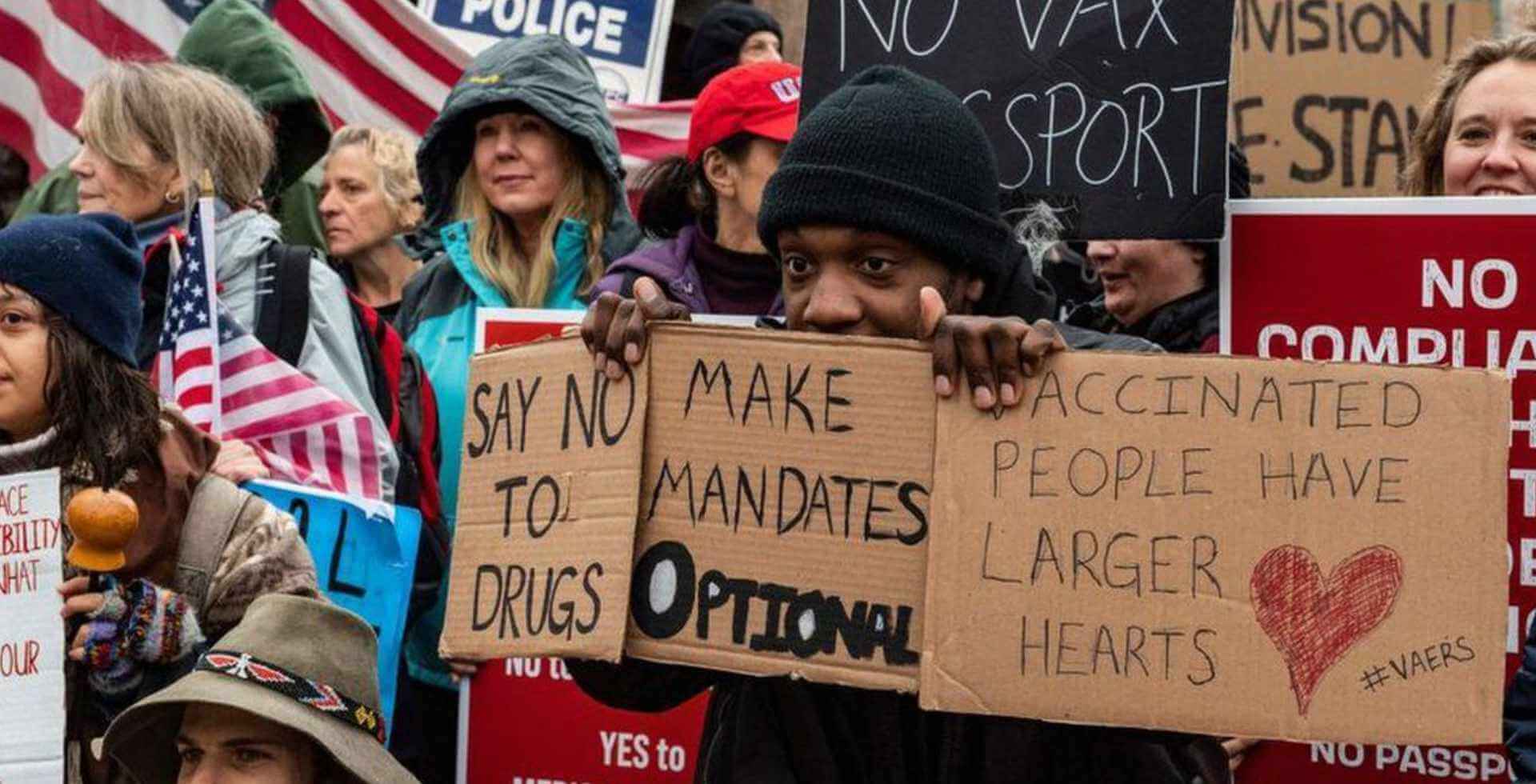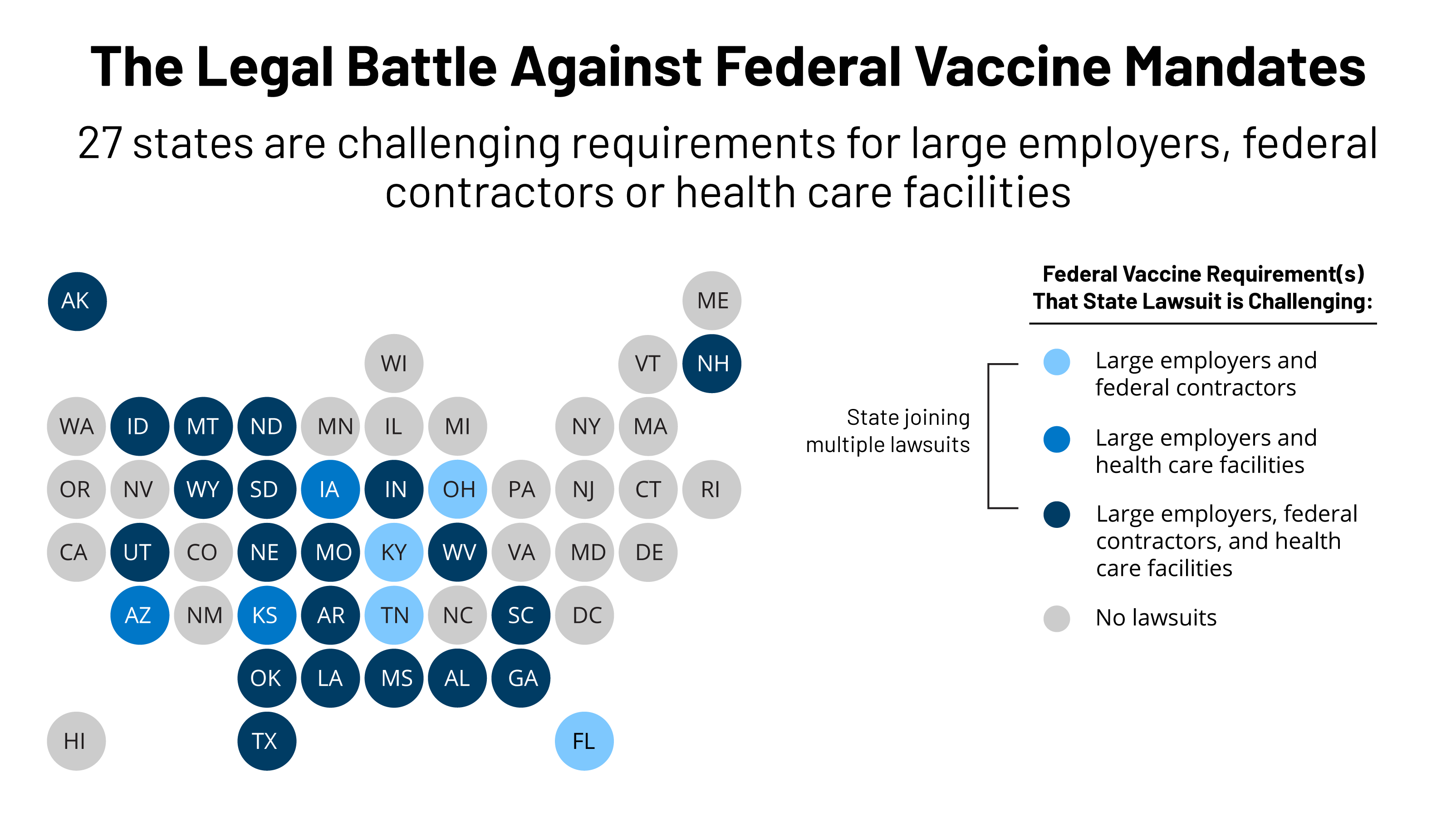Do Vaccine Mandates Work
January 30, 2022 | Expert Insights

Despite free vaccines available in abundant quantity, over 20 per cent of the adult population in the United States remain unvaccinated. This is despite many states offering sops such as cash payouts, lotteries and other schemes to incentivise people into getting vaccinated.
Background
The imposition of a vaccine mandate is a hotly debated issue in many democracies. When the Biden administration tried to pass legislation requiring mandatory vaccination or weekly testing of employees in companies with more than 100 workers, the Supreme Court had blocked the same. According to the conservative justices, the government did not have the authority to allow OSHA to require the vaccination of 84 million Americans. On the other hand, the liberal justices of the court believed that during the middle of a pandemic, it is the responsibility of the federal government to protect workers from danger.
This same division in public opinion was illustrated when popular news anchor Tucker Carlson famously compared COVID-19 vaccine mandates to experiments conducted by Nazi Germany and Imperial Japan - “After watching what the imperial Japanese army and the Nazis did in their medical experiments, I thought that American physicians agreed that compulsory medical care was unethical, it was immoral”.

Analysis
To answer the question whether vaccine mandates are ethical or an infringement of personal freedom, it is critical to look at two aspects. Firstly, do vaccine mandates work? Secondly, can modern societies take steps that could be considered an infringement of personal freedom to protect the greater good?
The social space is so flooded with COVID-related misinformation and disinformation that it is very hard to make out where the truth lies. There are platforms that underplay the dangers of the virus while exaggerating the risks of the vaccine. A study published by the Washington State department on the 19th of January 2022 states that in the age group of 12-34, the unvaccinated are five times more likely to be hospitalised with COVID, than those who are vaccinated. For the above 65 category, the unvaccinated are seven times more likely to be hospitalised and thirteen times more likely to die of COVID than those who are vaccinated.
This was supported by another study conducted by the University of Edinburgh, which claims that Pfizer and AstraZeneca are 90 per cent and 91 per cent respectively effective in preventing COVID-related deaths. Even the respected Lancet has published a study that states that after two doses of the vaccine (Pfizer or AstraZeneca), the human body will have sufficient antibodies to fight Alpha and Delta infections. With a booster dose, it will also develop adequate antibodies to fight an Omicron infection.
There are also some concerns that COVID-19 vaccines are causing heart problems such as myocarditis and pericarditis. Although this has indeed happened, misinformation about the severity and frequency has created panic. The counter view is that the chance of getting myocarditis and pericarditis (from the vaccine) is far less than contracting myocarditis from COVID.
Do vaccine mandates work? In Canada, after the vaccine mandates were passed, within one week, the vaccination rate (for the first dose) increased by 42 per cent and by the 2nd week, it increased by 71 per cent. Europe, which passed a mandate in mid-2021, showed similar results - boosting overall vaccination rates in Italy by 12 per cent, in France by 8 per cent and in Germany by 5 per cent. Experts claim that 46,000 cases of hospitalisation were avoided, 6400 deaths were prevented, and an economic loss of around 11 billion dollars was circumvented due to the mandates mentioned in the above three European countries.
According to the World Economic Forum, 80 per cent of workers worldwide would take the vaccine to keep their jobs, even though 38 per cent of workers said they would be comfortable in an environment with no testing of vaccine mandates. Only 5 per cent of workers said that they would quit their jobs and find other work if vaccine mandates were implemented. Clearly, vaccine mandates work. It pushes people to get vaccinated, thereby saving lives and money.
Of course, the ethics surrounding vaccine mandates is another pertinent issue. Personal freedom is the primary justification proffered against vaccine mandates. Should people have the choice to refuse or accept medicines? Unlike most medicines, which are primarily used to protect a single individual, vaccines are created to protect communities. Suppose groups of people do not get vaccinated; the chances of the virus mutating and spreading only increases.
Vaccine mandates should also apply to people equally; gender, race and socioeconomic status should not matter. There should definitely be exceptions to the vaccine mandates, for example, in case of people who cannot take the vaccine due to medical reasons (even though this is very rare). Even in non-pandemic times, when people’s personal choices harm others, there are regulations to prevent the same. This is why, for example, we have speed limits and laws against drinking and driving. If we can understand that vaccines are beneficial to the public and agree on medical exemptions, personal freedom should not supersede community benefits.
All over the world, there are regulations pertaining to vaccination, even when we are not in a pandemic. Businesses, schools, and universities, for instances, require their students and workers to take certain vaccines to be eligible for enrolment or employment. Even for foreign travel, shots against strains like Yellow Fever have been mandatory for decades, especially while travelling to and from Africa.
Counterpoint
Many people contend that enforcing mandates can be met with lots of public resistance. This could come in the form of public demonstrations or even political movements. In the U.S., for example, more and more politicians are taking a stance against mandatory vaccination in order to keep their voter base happy.
Public demonstrations could potentially lead to other types of violence. It is also argued that if the government enforced vaccinations, it would only reinforce people’s mistrust of the government. Governments should try and use other means to increase public trust in the vaccine and build better relations with the public.
Assessment
- From available data published by reliable institutions, it appears that vaccine mandates are effective in convincing the population to be vaccinated for the larger good of their communities. More importantly, they are saving lives.
- Of course, there have to be exceptions to the rule, especially for those with a medical condition. However, on the face of it, it is not so that there are ethical dilemmas associated with vaccine mandates. Comparison with Nazi death camp medical experiments and Imperial Japanese Army’s notorious Unit 731 is a bit of an overstatement, if not outrightly outlandish.
- In democracies, policymakers have their work cut out to build public trust and deflect the anti vax campaign, which thrives on information vacuum and lack of transparency.








Comments